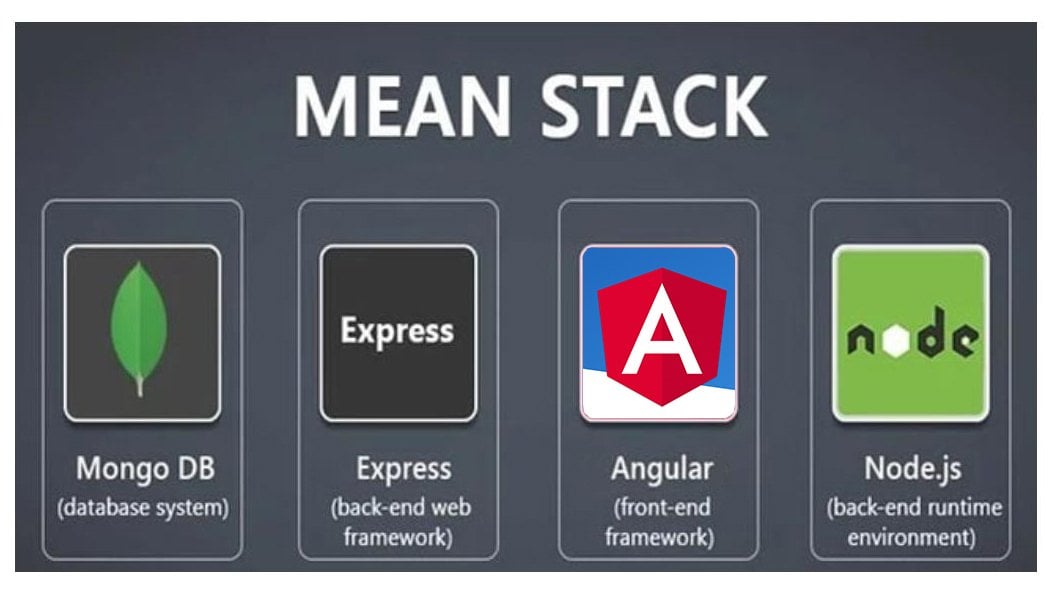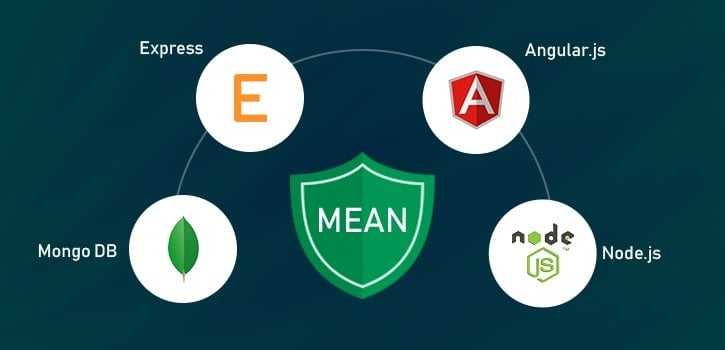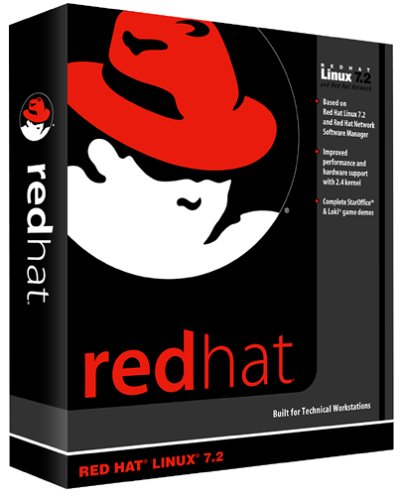The global IT work space has continued to evolve over the years bringing a lot of technological changes. And to keep up with all these changes, new-age developers need to buckle down in creating intuitive yet user-friendly products. Moreover, they also need to utilize the faster and super-operative web procedure commonly referred to as ‘Stack’.
In this article, we are going to look at who is a mean stack developer, skills required to become a mean stack developer, and areas where businesses can utilize this technology.
But first, we need to define what is a MEAN Stack.
Basically, MEAN Stack is a set of computer languages typically used to build dynamic mobile applications or websites. Its a culmination of four different JavaScript-based technologies. That is;
MongoDB Express: This is the first component of the MEAN Stack frame. Normally considered as one of the most prominent NoSQL databases, MongoDB express is regularly used by developers in managing tons of data that contain massive tables.
Express JS: It’s normally used to build web apps and provide resources for creating either a single or multi-page web application.
Angular JS: This front-end JavaScript framework is used to develop single-page applications thanks to great features like two-way data binding. As such, developing front-end apps becomes faster and easier.
Node.JS: Anchored on Google Chrome’s V8 JavaScript runtime, Node.JS is used by Mean Stack developer/s to rapidly build scalable and contemporary web applications.
Wh0 is Mean Stack Developer?
MEAN Stack developers are engineers who have mastered particular techniques that capitalize on the different layers of the MEAN stack.
To become a MEAN Stack Developer, here are some of the skills you will have to learn;
- Deep understanding of front-end and back-end processes.
- Familiarity with HTML / CSS.
- Deep knowledge of databases.
- Knowledge of SDLC.
- Continuous integration.
- Cloud technologies.
- Understanding of architectural design guidelines and programming templates.
- Applications profiling and optimization.
So, is there a difference between Mean Stack and Full Stack?
Full Stack vs MEAN Stack Developer
There has been a raging debate as to whether a MEAN stack developer fits the title of a full stack developer. Well, there are many ways to look at it. But for purposes of this article, we are going to limit ourselves to their respective scope of work.
A MEAN Stack developer specializes in specific technologies to develop both the front-end and back-end components of a website which qualifies them the title Full Stack developers. On the other hand, a full stack developer is limited to specific technology stack for development. For instance, they can work with Django stack, LAMP stack, and Ruby Stack.
As such, Full Stack developer must have functional ability and knowledge to take a simple concept and actualize it into and actualize it into a finished product without any limitations, which is not the case with MEAN stack developers.
Some of the essential skills needed to become a Full Stack developer include having knowledge of;
- HTML/CSS
- Databases & Web Storage
- Back-End Language
- Web Application Architecture
- Basic Algorithms
- Data Structures
- HTTP & REST
5 Benefits of Mean Stack Technology
More and more businesses are beginning to embrace MEAN by building their web applications using this technology. If you’re considering using MEAN Stack, you’ve got many reasons to do so.
Here are some of the advantages of using MEAN Stack;
1. Cost Effective
MEAN Stack has come at a point where there is an insatiable need to develop web applications cost-effectively. When looking to hire a developer to create such a product, you need to ensure that have in-the-gutters-experience with JavaScript. This compared to using LAMP stack where developers must be familiar with multiple technologies. As such, the number of developers required to build apps using MEAN stack is significantly small making it highly cost-effective.
2. Highly Flexible
For long, JavaScript has been a popular and the language of choice for front-end web development thanks to it’s flexible and dynamic nature. Recent developments have also seen JavaScript for back-end and also database development. This has allowed developers to create end-to-end JavaScript applications. And since all the Stacks in MEAN have been built using the same language, streamlining of the development team becomes super-easy.
Moreover, MEAN Stack eliminates the need to hire multiple developers to take care of the respective parts of an application. Instead, a business can deploy a consolidated team of JavaScript developers to adaptively work, where needed.
3. Open Source and Cloud Compatibility
All the technologies in the MEAN stack are open source and absolutely free. Development teams can significantly drive down the development costs by leveraging on the public repositories and libraries. For instance, the cloud functionality of MongoDB means that an app can be deployed on a web server hence reducing costs associated with maintaining a large disk space.
4. Quality Assurance
Applications built using MEAN do support automated testing. This means that the development teams have an easy time to detect and troubleshoot feature breaks down once the app is deployed. As a result, future maintenance of quality and integrity becomes easy.
5. A Growing Online Community
MEAN has earned global respect within the development spectrum globally. The framework has proven to work well for many developers hence eliciting curiosity within the development ecosystem. As a result, there has emerged a group of enthusiastic developers who works towards improving and supporting each other when using MEAN.
A simple Google search on any issue to do with MEAN will give you comprehensive solutions on how to solve them. This growing interest means that MEAN Stack has become a proven tool for development teams that everyone should make use of.
The Salary of a MEAN Stack Developer
The demand for MEAN Stack development is high and so are the salaries. According to Glassdoor, the annual average salary of a MEAN developer in the US is $98,987. However, this amount can go as high as $122.000 depending on the experience level, seniority, and complexity of respective projects.
In the UK, a Full Stack developer earns a mean annual salary of £47,920 according to Indeed.com.
In France, an entry-level position commands an annual salary of €17,000 with an experienced developer taking home between €37,911 and €50,000 per year.
In Eastern Europe countries, the story is a little bit different as the salaries here are on the lower side. For instance, MEAN developers earn an average of $38,400 annually in Ukraine. Of course, this is subject to fluctuations depending on additional perks that may come with the job position.
Conclusion
Web development has seen a revolutionary movement in the form of MEAN Stack thanks to the great features and effective approach in making web development easy. It’s a complete package offering development teams all the necessary features and support that they may need in the course of executing their tasks. Unlike contemporary technologies, it allows developers to build intuitive single-page applications, that don’t require constant refreshing for all the server requests. In fact, many mobile app development companies have embraced MEAN stack development in building mobile app and websites.
If you are still out there wondering how to become mean stack developer, it’s about time you jumped into this bandwagon as the future of MEAN is definitely bright.
Get updated with informative IT blogs with Broadwayinfosys and satisfy your queries on all courses and training details.







